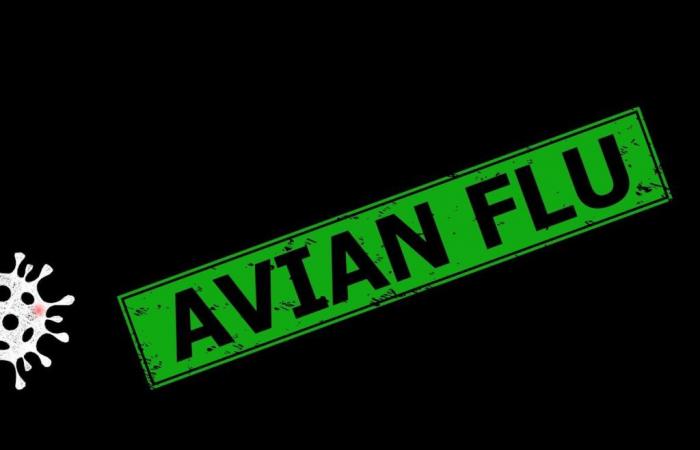More than one month after the country’s previous outbreak in commercial poultry, Japan’s animal health agency has confirmed the presence of the H5N1 highly pathogenic avian influenza (HPAI) virus at another farm.
Around March 11, 15 laying hens died out of a flock of 82,542 birds, according to the official notification to the World Organization for Animal Health (WOAH). The remaining birds were blamed to prevent further spread of the infection.
The latest premises to be affected was near the town of Kitahiroshima. It was the first outbreak in Hiroshima. This prefecture is part of Chugoku, the region that covers the western part of the main island of Honshu. There has been one previous HPAI outbreak in this region.
Japan’s first HPAI outbreak of the 2023-2024 season linked to this virus serotype was in November. Since then, nine outbreaks have been reported to WOAH — all in different prefectures, and in five of the country’s eight regions. Directly impacted have been more than 736,000 poultry.
In early February, another HPAI virus serotype — H5N6 — was detected on a poultry farm in Japan for the first time in six years. Since then, no further outbreaks linked to this serotype have been reported.
However, WOAH has been notified of a significant number of Japanese wild birds testing positive for HPAI over the past month, mainly in crows.
Testing positive for the H5N1 virus variant were 50 wild birds between December and March, along with 31 individuals infected with the H5N5 virus serotype.
The latter variant has not been reported in the nation’s poultry flocks.
Outbreaks in poultry in Philippines, Taiwan
Earlier this week, the Philippine News Agency (PNA) reported that more than 60,000 chickens have been culled. This followed the detection of HPAI virus after a spike on bird mortality.
Affected was a farm in Leyte, which makes this the first HPAI outbreak in this province, and in the region of Eastern Visayas, according to this source. Local authorities urged poultry owners to protect their flocks, and to report unusual mortalities in their birds to the authorities.
Subsequently, officials in the nearby province of Cebu announced a 45-day ban on the entry of live birds from Leyte, reported PNA.
Based on WOAH notifications, more than 280 outbreaks linked to the H5N1 virus variant have occurred in poultry flocks in the Philippines since January of 2022. The most recent outbreak reported began in November of 2023.
In recent days, around 19,800 hens were killed in central Taiwan after they tested positive for the same virus serotype.
According to Taiwan News, increased deaths in the flock were observed at the affected premises, which is in the county of Changhua.
Since November of 2023, 10 outbreaks had occurred in Taiwanese poultry flocks up to the end of January, based on WOAH notifications.
HPAI developments elsewhere in Asia
Authorities in the south Indian state of Tamil Nadu have urged poultry owners to stop buying eggs, chicks, and feed from neighboring Andhra Pradesh. This is according to a report in The Hindu earlier this month.
Previously, local media reported that the deaths of thousands of poultry in the Nellore district of Andhra Pradesh were linked to the H5N1 HPAI virus.
In western Asia, authorities in Israel have reported to WOAH that four more wild birds have tested positive for the same virus variant, which is also responsible for the mortality of more than 1,000 wild cranes in the Hula Valley area of Hazafon (Northern District).
New human infections in 3 Asian states
Over the past month, the World Health Organization (WHO) has recorded six further infections with avian influenza A virus in people in the Western Pacific region.
In January, two brothers from Kratie province in Cambodia tested positive for avian influenza A(H5N1) virus. Aged nine years, the younger boy died in early February. His 16-year-old brother was asymptomatic, and is presumed to have recovered. He had handled dead poultry, and both boys had consumed the infected meat.
Located in the northeast of the country, Kratie is one of three Cambodian provinces where this virus variant has been detected in poultry, according to WOAH notifications.
The other four infections were linked to the avian influenza A(H9N2) virus, according to WHO, and occurred in Chinese children during the month of February.
Found to be infected were a 22-month-old girl in Hong Kong Special Administrative Region, two boys aged three years in Guangxi and Guangdong, and an 11-year-old male in Jiangxi. All were admitted to hospital, but have since recovered.
The three boys from mainland China were known to have had contact with infected poultry through a live market or backyard flock. However, the case in Hong Kong is not thought to have had contact with poultry or people with symptoms. She had visited Guangdong province during the incubation period.
In Vietnam, avian influenza A(H5N1) has been confirmed in a 21-year-old man, according to Avian Flu Diary blog earlier this week.
Citing a local official source, it reports that the patient — from Khanh Hoa in the South Central Coast region — has died. He had no known contact with infected poultry, but had handled wild birds around the Lunar New Year holiday.
The clade responsible for the infection is not identified, according to the blog. It suggests this could be an older one (2.3.2.1c) still circulating in Asia and linked to recent Cambodian cases, or clade 2.3.4.b, which is a more recent one that was last linked to a case in Vietnam in October of 2022.
View our continuing coverage of the global avian influenza situation.
Tags: Avian flu outbreaks hit poultry Japan Philippines Taiwan
--





